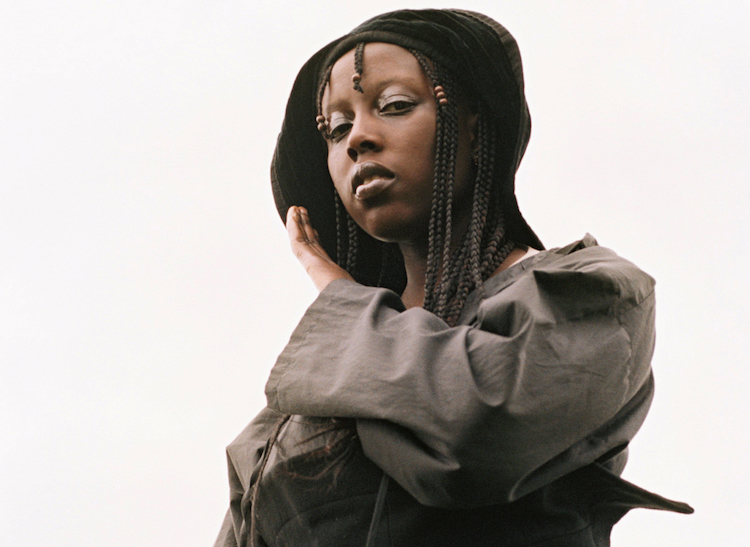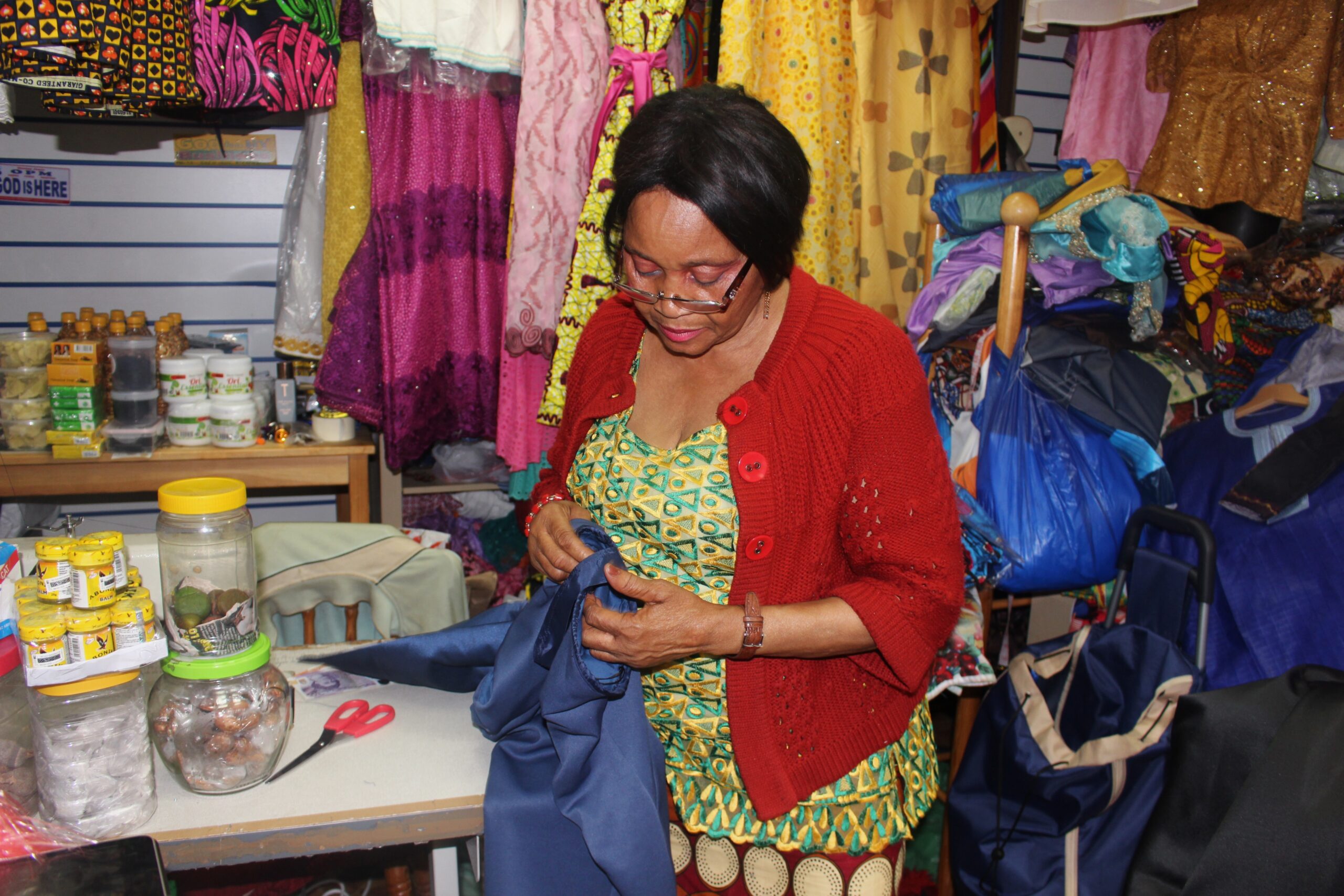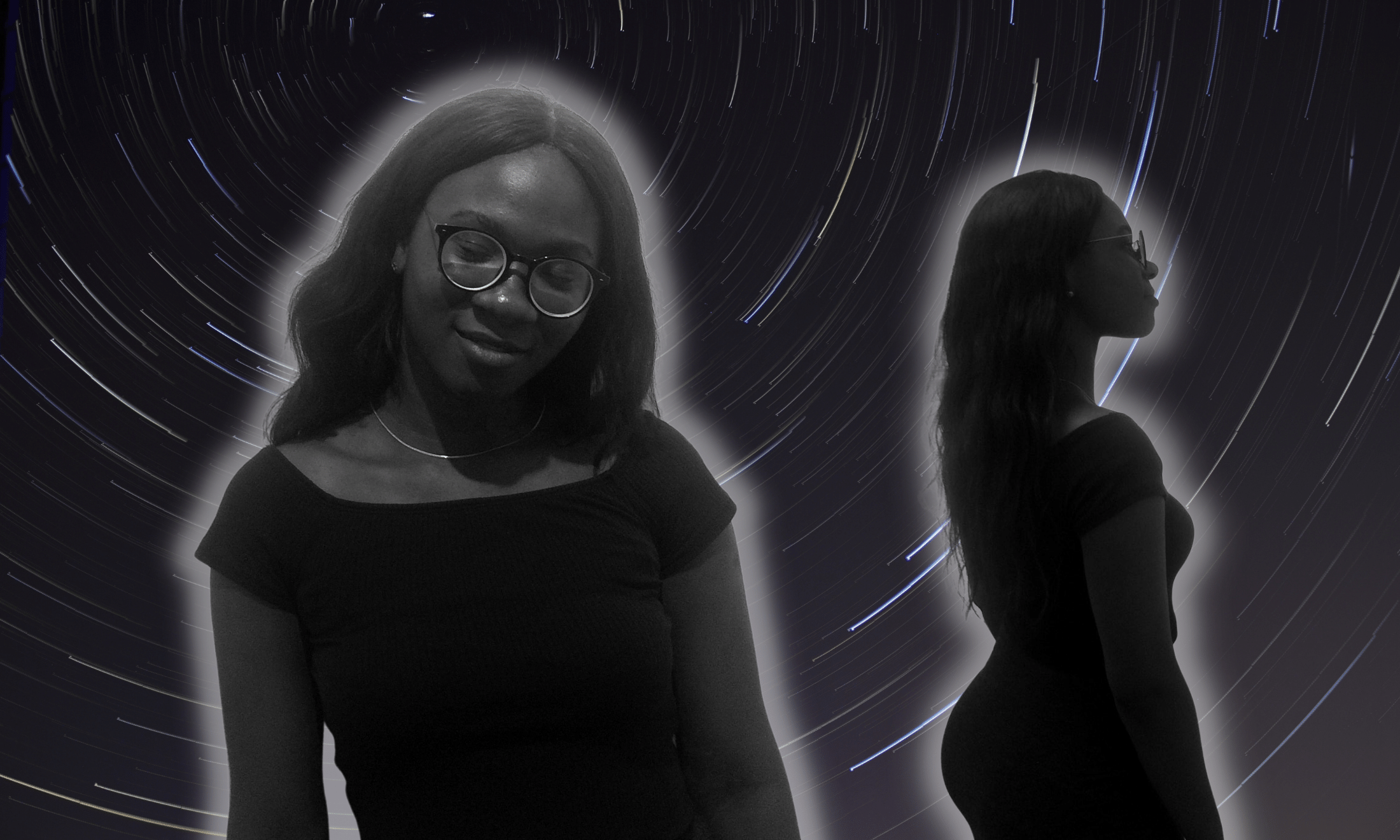
On first encounter, the work and character of British-Nigerian musician Klein seems shrouded with a certain ambiguity. Her distinctive fusion of hip-hop, classical, RnB and electronic influence leaves much to the imagination, as it feeds wide-ranging sounds that can be hard to piece together at first.
When coupled with unique visuals (as seen both in her YouTube videos and on her Instagram feed), we’re left with artistry that is unique – both rhythmically and conceptually. Klein is still a relatively new contender on the scene; she tells me how excited she is to celebrate the one-year anniversary of becoming a full-time musician this coming autumn. Despite having only just started out, her 2016 EP Lagata was well received, and propelled her to the forefront of London’s new wave of DIY artists. Ahead of the release of her second EP Tommy, gal-dem sat down with Klein to discuss her childhood, her roots in Nigeria and what actually influences her creativity, contrary to popular misconceptions.
“I’m Klein and I have an undisclosed age because I just don’t think it’s important really”
“I’m Klein and I have an undisclosed age because I just don’t think it’s important really.” I’m immediately exposed to her open, assertive and vulnerable demeanour. These are notions that have defined many aspects of her life and thus are present in her music —especially on this new release, Tommy.
Klein saw out the early days of her childhood in south London. “I spent a chunk of my childhood in Camberwell, but I didn’t like south London because it was a bit rough at the time. I used to go and visit friends who lived in west London and a point came where I used to be like embarrassed about being from south. Only now I’ve started to be more proud about where I’m actually from,” she says.
“…when people talk about my music they’re always like ‘Oh my God, your stay in Nigeria must have really influenced your music!’ and I’m just like, erm, not really because when I was in Nigeria I kind of had no interest in making music”
At the age of seven Klein relocated to Nigeria with her mother, spending five years with her grandmother. Being imaginatively inclined, this period abroad inspired a later bout of creativity. “It’s a strange one because when people talk about my music they’re always like ‘Oh my God, your stay in Nigeria must have really influenced your music!’ and I’m just like, erm, not really because when I was in Nigeria I kind of had no interest in making music,” she says.
Admittedly, the first time I listened to her 2016 album Lagata, I made this same assumption. A lot of my attention was drawn to the Yoruba prose sampled on the opening track; perhaps I was reading into her frequent use of the Nigerian flag emoji in her Instagram captions.
“Tommy plays around with the idea of vulnerability, me understanding my emotions and not being afraid to say certain things, to others as well as myself”
Listening to Lagata, you may believe that Klein drew direct inspiration from the time she spent in Nigeria, when in actual fact what defines her work is a lot more emotional and conceptual. I pose my opinion to Klein, arguing that Tommy is a lot darker than Lagata – she agrees. “The song on Tommy that perhaps best exemplifies this is ‘Never Cry’”. Klein explains that the message on this track is that “it’s okay to be sad and it’s okay to be vulnerable”. As a whole, “Tommy plays around with the idea of vulnerability, me understanding my emotions and not being afraid to say certain things, to others as well as myself.”
Klein’s introduction to the industry was less than conventional. “I grew up with music that was essentially the opposite of the music I make”. She goes on to list gospel and pop which isn’t too much of a shock as aspects of these genres do clearly find their way into her work — but she then surprises me, laughing as she cites Paramore and Coldplay as former household favourites. “In terms of the way I put together my melodies and vocal range, most of it is very reminiscent of old school 90s melodies.” Klein gave honourable mention to US RnB producer Rodney “Darkchild” Jerkins (known for Destiny’s Child’s ‘Say My Name’ and Spice Girls’ ‘Holler’) as someone from whom she took particular inspiration.
As a child, she was neither classically trained nor did she initially want to be a musician. Unlike many other artists, the work she produces today isn’t an instantly recognisable blend of what she was exposed to as a child, nor can she pinpoint the moment when she recognised the career path she wanted to take. “Strange” is the word Klein uses to describe her journey into music. “I never said anything like, ‘Ah, I want to be a musician!’”
Her childhood was spent making the “mistake” of convincing herself to become a lawyer — something her family encouraged, before she realised that a career in the arts might be better suited, “I knew I kind of wanted to work in TV or film or something, but music? No, no, no. I didn’t think I could be a musician because the stuff I was doing when I was younger, like covers and stuff were just unheard of in the charts.” She says it was more of a “fun hobby”, a hobby that spiralled as she trialled different styles at open-mic nights and on organs, before developing a sound she was comfortable with after those formative years of experimentation.
“I think what I want the listeners to feel is that they actually know me […] I don’t necessarily make music to be played in the club. I make the kind of music to listen to at home, or when you’re driving. It’s a slow build — if I heard my stuff for the first time, I wouldn’t know what to think”
When asked, Klein used the word “noisy” as a descriptor for her music, but went on to consolidate this mild self-deprecation by saying “there are sentiments in [the music] with quite familiar tones. My style is more of a general product […] lots of people are like ‘Oh my God it’s so experimental and electronic!’ but in my head, it sounds just as ‘pop’ as anything else because of the melodies”.
As the conversation continues, Klein gives more of an insight to the intention behind her music. “I think what I want the listeners to feel is that they actually know me […] I don’t necessarily make music to be played in the club. I make the kind of music to listen to at home, or when you’re driving. It’s a slow build — if I heard my stuff for the first time, I wouldn’t know what to think”. There is indeed a slow build, but as you become more familiar with the conventions of her music you can start to pick out parts that were clearly inspired by pop, by RnB, gospel and so on.
We can expect big things from Klein following this release and moving into 2018. With a series of live performances planned, including one at London’s Village Underground, we can only hope that more fans will emerge after being invited into Klein’s world. She hopes to do a few shows for herself too, enabling her to include more of her friends as she’s “tired of seeing 30-year-old white men at [her] shows”.
‘Tommy’ is out on 29 September on Hyperdub on both vinyl and digital









